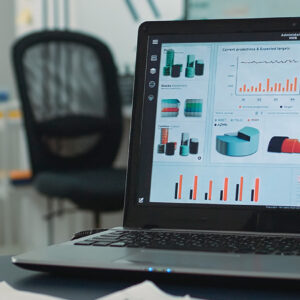Combining electronic medical records systems with health systems has made information management straightforward.
However, the most significant challenge arising from this transition is the need to be very careful about protecting the privacy of patients’ confidential data.
In an era when digital solutions such as electronic medical records (EMRs) are widespread among organizations, upholding customer confidence by observing the utmost data security and privacy protocols and legal requirements becomes pivotal.
Presented below are some important approaches for securing an electronic medical records system.
Understanding Data Security and Privacy Requirements
Proper data security starts by knowing what the law requires you to do. The United States has HIPAA or the Health Insurance Portability and Accountability Act, while Europe uses GDPR, which stands for General Data Protection Regulation. These laws contain specific instructions regarding the safekeeping, retaining, and sharing of personal health information. Such guidelines are very important for businesses as they carry heavy penalties attached to non-compliance, which should ensure the safety of patients at all costs.
Implementing Strong Access Controls
Access control forms the basis of data protection. Access based on roles prevents unauthorized persons from seeing confidential records. Additional verification stages can enhance this process’s security, such as the use of multi-factor authentication, which is crucial here. It would be necessary for electronic medical records systems to allow detailed access privileges so that information flow can be controlled within various departments without posing too much of a threat to confidentiality.
Encrypting Data
Data encryption keeps private information safe because it cannot be understood if decrypted keys are not used before rereading when decrypted keys have been put into the application. This function will always protect the patient’s details, even with an attack. Sound electronic medical records systems should support encryption in resting and moving states, ensuring data security every time.
Regularly Updating and Patching Software
Outdated software has weaknesses that cyber criminals exploit. Keeping your electronic medical records systems up to date and protected against new menaces is as simple as regular updating and patching. Failure to update the software exposes your EMR system to hackers. One should prioritize updates to guarantee that patient records remain safe and sound.
Implementing Data Backup and Recovery Procedures
Data loss may occur due to system problems or attacks. Regular data backup ensures speedy retrieval of patient files, decreases downtime and avoids loss arising from such reasons. A strong backup plan that complements recovery strategies guarantees business survival even when hackers breach security or when systems themselves fail.
Training and Awareness
People’s mistakes usually lead to data breaches. Training employees about various ways to enhance their security practices is an effective measure to mitigate these risks. Workers must know how to identify phony email messages, create strong passwords, and protect confidential information from leaking around. Such awareness campaigns are important in ensuring that data security is always given priority.
Conducting Security Audits and Vulnerability Assessments
Regular security checks can show weaknesses in protecting patients’ information installed in your electronic medical record system. By carrying out vulnerability evaluations, companies can attend to any emerging problems before they become ripe for exploitation. These proactive measures are essential for keeping up with evolving security threats.
Conclusion
Data privacy and security in electronic medical records systems are not things one may choose to ignore; they should be treated seriously.
Understanding the set rules, tough measures on entry, coding information, and other related protective acts, plus following routine audits, will help mitigate any risk posed to customers’ welfare by sharing nonsensitive documents that Zoftware can analyze.
Zoftwareis a worldwide B2B platform that assists organizations in getting customized electronic medical records software.
With Zoftware, companies can compare, evaluate, and apply safe electronic medical records systems.





